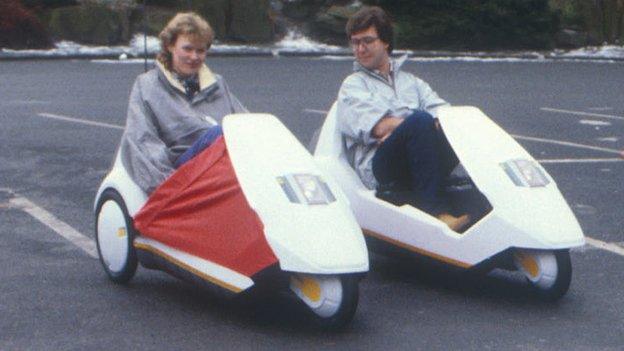Calls for more electric car charge points in Wales
- Published
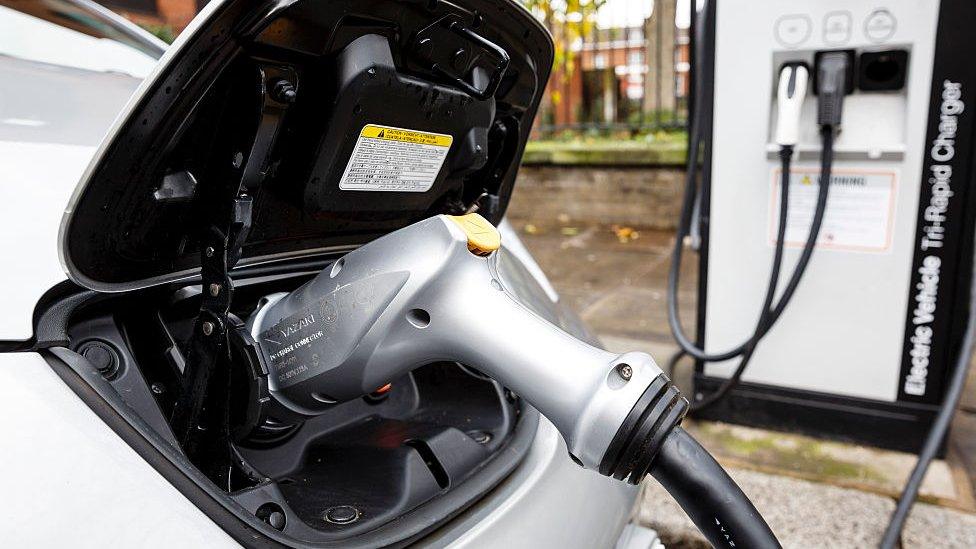
Calls have been made for the Welsh Government to help introduce a network of rapid charging points for electric cars throughout rural Wales.
The only points available for public use are along the M4 in south Wales and the A55 in the north.
Shadow Economy Secretary Russell George said ministers needed to recognise that funding help is needed.
The Welsh Government said it is committed to helping the low carbon vehicle sector grow in Wales.
Rise in electric
Latest figures show the number of electric cars in Wales has increased significantly in recent years.
There were 1,725 fully electric or plug-in hybrid vehicles on Welsh roads from July to September 2016 according to official vehicle records, compared to just 70 during the same period in 2012.
But campaigners believe more progress on low-emission vehicles is being hampered by the charge-point infrastructure.
Back in 2015, a report by a group of experts appointed by Welsh Government, external made a string of recommendations, including installing charging points at all government premises and encouraging local authorities to do the same.
'Chicken and egg'
Russell George, the Conservative assembly member for Montgomeryshire said it was now time for Welsh Government to act on the report's findings.
"The trouble is it's a chicken and egg situation - people want to use electric vehicles but they can't because the infrastructure's not there - and the infrastructure's not going to be built until the demand is there," he said.
"I would like to see government recognising that it does need some grant and funding support for this - in order for anyone in Wales to make sufficient use of electric vehicles you've got to have charging points in rural areas as well."

More electric cars in Wales means more charge points
Richard Burrows, who runs a plumbing and heating supplies business in Newtown, Powys, said he found it "very difficult" to travel long distances in his electric van.
He bought the vehicle to try and reduce his overheads, but is now questioning whether it is a viable alternative to his old diesel model.
"I think Wales has been a bit slow to adopt electric vehicles, unlike England and Scotland where lots of local councils have got on board," he said.
"Here, the top and bottom of the country are covered in terms of charging points, but throughout the middle it's very difficult to go anywhere."
Mr Burrows has now installed his own medium-strength 7kW charger at his premises, which allows him to charge the van in about four hours.
A rapid charger could do the same job in around 20 minutes.
"A big difference," adds Mr Burrows.

Professor Peter Wells of Cardiff Business School said that more rapid charging points could make electric car use "a default, no worry option" for people.
"The government can't do everything - they haven't got the resources simply to but a lot of infrastructure and put it in place. But I think government has to do its best to provide a framework, to provide a regulatory target and to encourage local authorities and those within the whole government system in Wales to really get behind this idea and support it."
One organisation that is trying to improve the network of charging points in rural Wales is the National Trust, which has installed just under 40 slow and medium-strength chargers at its properties in Wales.
It has plans to install a further 30 over the next 18 months.
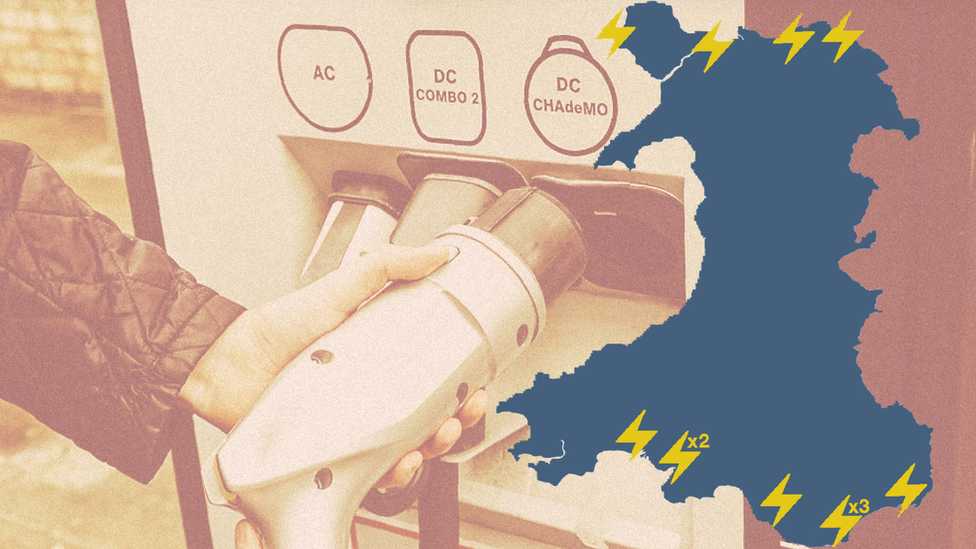
Rapid charging points in Wales are confined to the M4 and A55 corridors at present
Keith Jones, environmental adviser for the National Trust, said it made environmental and business sense, with visitors spending time at the charity's properties as they waited for their cars to charge up.
"I think we need to look at ourselves as a country and ask what will ten years look like and what do we need to put in place. At the moment this is still a cottage industry - it's not at the infrastructure level."
"Some grown up chats need to take place."
A Welsh Government spokesman said: "We are committed to exploring opportunities to reduce emissions from transport and maximise the low carbon vehicle sector's opportunities for growth and jobs in Wales.
"We are considering the recommendations of the Low Carbon Vehicle Expert Steering Group in the wider context of our decarbonisation duties under the Environment (Wales) Act."
- Published27 February 2014
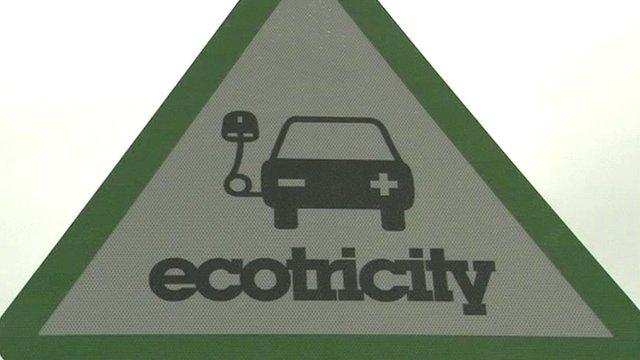
- Published17 July 2012
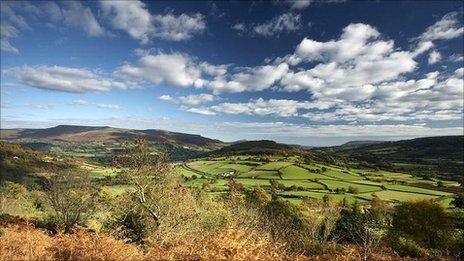
- Published13 July 2014
